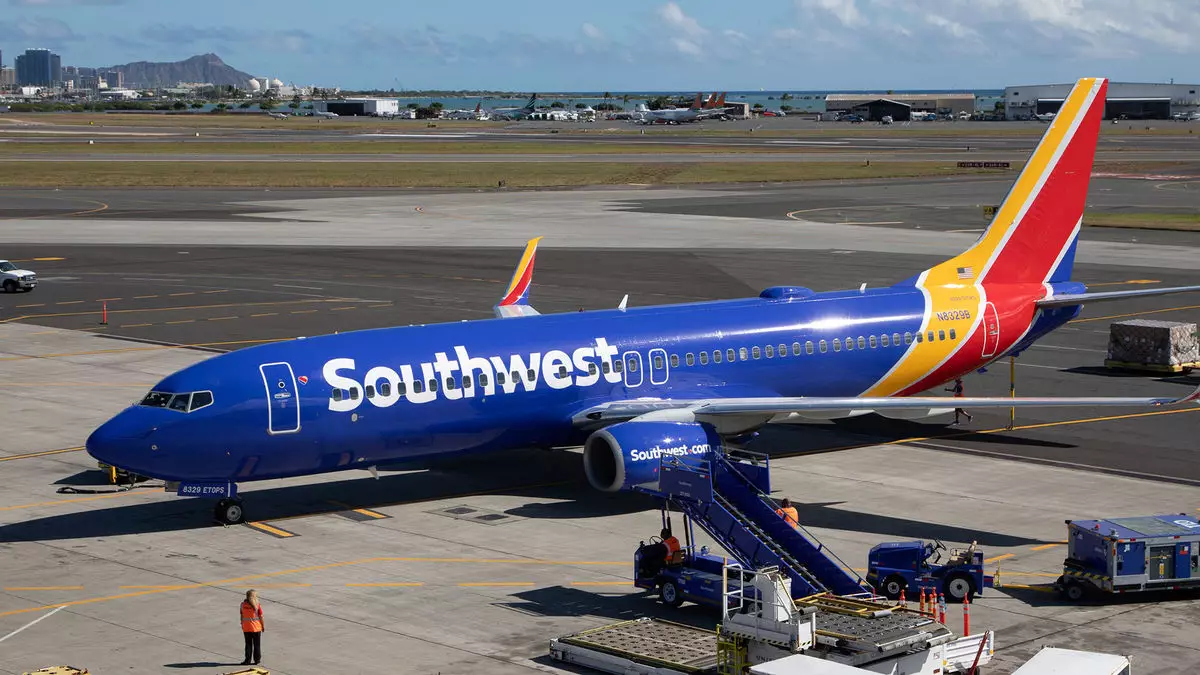In recent weeks, Southwest Airlines has found itself at the center of a significant corporate upheaval due to the actions of Elliott Investment Management, a prominent activist firm. The firm’s 11% stake in Southwest, acquired in June, has positioned it as a key player in the call for substantial changes within the airline’s management team and board of directors. Their call for a special shareholder meeting highlights an urgent desire for transformation, as shareholders appear to be increasingly dissatisfied with the current leadership’s direction.
Elliott’s campaign has zeroed in on perceived missteps by Southwest management, branding their response to Elliott’s investment as a “chaotic series of defensive actions.” This language not only captures the intensity of the board’s conflict but also reflects a broader sentiment among shareholders grappling with the airline’s recent performance. Elliott’s letter, drafted by partner John Pike and portfolio manager Bobby Xu, criticizes the existing board’s support for current CEO Bob Jordan and emphasizes the need for fresh leadership—suggesting a disconnect between the current management and the aspirations of its investors.
Elliott has proposed a slate of ten new directors, suggesting that they possess the necessary skills to guide Southwest Airlines toward a more prosperous future. The firm’s focus on enhancing the board’s competency underscores a stark concern regarding the existing board’s expertise. Despite some positive steps announced by Southwest—which include a plan for Kelly to resign as chairman and the introduction of potential new board members—the current board’s composition will predominantly remain intact. This raises questions about the effectiveness of these changes and the likelihood of meaningful improvements in strategy or oversight.
At a crucial juncture, Southwest is attempting to navigate a transformation plan designed to modernize its services, including an introduction of extra-legroom seating and a departure from its traditional open seating policy. As the airline prepares to unveil more details, the juxtaposition of internal turmoil with external strategic initiatives creates a complex narrative of a company at odds with itself. This transformation comes in the wake of Elliott’s pressure, further complicating the board’s agenda as they grapple with maintaining investor trust while executing long-term strategies.
In their recent correspondence, Pike and Xu urged shareholders to prepare their votes ahead of a potential proxy battle for influence over the board. The emphasis on voting readiness serves as both a strategy and warning, hinting at the complexities of shareholder advocacy. With a traditional shareholders’ meeting occurring in May, the prospect of a special meeting serves to expedite decision-making and foster an environment of accountability.
The unfolding situation at Southwest Airlines exemplifies the tensions between activist investors and corporate management, drawing attention to issues of governance, strategy, and the evolving landscape of shareholder rights. As stakeholders await the outcomes of both shareholder actions and management strategies, the results will significantly shape the airline’s trajectory in the coming years.


Leave a Reply